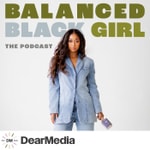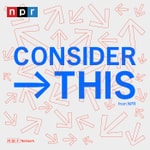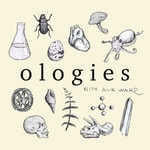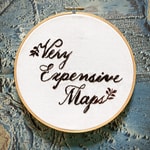Sea Change – Details, episodes & analysis
Podcast details
Technical and general information from the podcast's RSS feed.
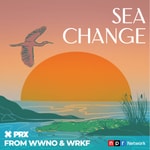
Sea Change
WWNO & WRKF
Frequency: 1 episode/14d. Total Eps: 63
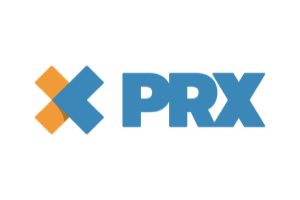
Living on the coast means living on the front lines of a rapidly changing planet. And as climate change transforms our coasts, that will transform our world.
Every two weeks, we bring you stories that illuminate, inspire, and sometimes enrage, as we dive deep into the environmental issues facing coastal communities on the Gulf Coast and beyond. We have a lot to save, and we have a lot of solutions. Join us as we investigate and celebrate life on a changing coast. It’s time to talk about a Sea Change.
Based in New Orleans, Sea Change is a production of WWNO New Orleans Public Radio and WRKF Baton Rouge Public Radio. Sea Change is a part of the NPR Podcast Network and is distributed by PRX. Hosted by Carlyle Calhoun. Our theme song is by Jon Batiste.
Sea Change is made possible with major support provided by The Gulf Research Program of the National Academies of Sciences, Engineering, and Medicine and The Water Collaborative. The Coastal Desk is supported by the Walton Family Foundation, the Greater New Orleans Foundation, and the Meraux Foundation.
Recent rankings
Latest chart positions across Apple Podcasts and Spotify rankings.
Apple Podcasts
🇺🇸 USA - nature
28/07/2025#17🇨🇦 Canada - nature
27/07/2025#94🇺🇸 USA - nature
27/07/2025#16🇨🇦 Canada - nature
26/07/2025#81🇺🇸 USA - nature
26/07/2025#18🇨🇦 Canada - nature
25/07/2025#72🇺🇸 USA - nature
25/07/2025#14🇨🇦 Canada - nature
24/07/2025#59🇺🇸 USA - nature
24/07/2025#17🇨🇦 Canada - nature
23/07/2025#51
Spotify
No recent rankings available
Shared links between episodes and podcasts
Links found in episode descriptions and other podcasts that share them.
See all- https://mailchi.mp/nhpr.org/outsideinbox
132 shares
- https://economichardship.org/
21 shares
RSS feed quality and score
Technical evaluation of the podcast's RSS feed quality and structure.
See allScore global : 74%
Publication history
Monthly episode publishing history over the past years.
The Stormy Insurance Crisis in the Sunshine State
mercredi 21 août 2024 • Duration 20:34
The home insurance market is collapsing all across the country. Big, brand-name insurance companies are walking away from the riskiest states. And, the companies that are sticking around are often doubling and tripling rates over just a few years. Nothing like this has ever happened before. And nowhere is this crisis worse... than Florida. In fact, Florida is the origin story of this crisis: the home insurance market in every other state seems to be headed down the road that Florida has paved.
This episode was hosted by Jessica Meszaros and Carlyle Calhoun. This episode was written and reported by Jessica Meszaros and Jack Rodolico. Editing by Jack Rodolico, and Carlyle Calhoun with additional help from Halle Parker, Eva Tesfaye, Ryan Vasquez. This episode was fact-checked by Garret Hazelwood. Carlyle Calhoun is the managing producer. Our sound designer is Emily Jankowski and our theme music is by Jon Batiste.
Sea Change is a WWNO and WRKF production. We're a part of the NPR Podcast Network and distributed by PRX. SeaChange is made possible with major support from the Gulf Research Program of the National Academy of Sciences, Engineering, and Medicine. WWNO's Coastal Desk is supported by the Walton Family Foundation, the Meraux, and the Greater New Orleans Foundation.
You can reach the Sea Change team at [email protected].
Bringing Back the Beach
mercredi 7 août 2024 • Duration 33:36
Even though New Orleans has water in every direction, it’s hard to access. And for a city with increasingly sweltering summers, this irony is painful.
In this episode, we’re going to talk about the uncomfortable history of Lincoln Beach, how it led to New Orleans not having any public beaches today, and how a community has rallied together to get their beach back. We start in the era of segregation, where if you were Black, the only place to soak up sun and sand was Lincoln Beach.
This episode was reported and hosted by Eva Tesfaye. Carlyle Calhoun is the managing producer. This episode was edited by Rosemary Westwood and Carlyle Calhoun with additional editing help from Halle Parker, Tyler Pratt, and Ryan Vasquez. Joseph King voiced WEB Dubois. Garrett Hazelwood is our fact-checker. Our sound designer is Emily Jankowski and our theme music is by Jon Batiste.
Special thanks to the Amistad Research Center at Tulane University and Sage Michael Pellet for sharing their archives.
Sea Change is a WWNO and WRKF production. We're a part of the NPR Podcast Network and distributed by PRX. SeaChange is made possible with major support from the Gulf Research Program of the National Academy of Sciences, Engineering, and Medicine. WWNO's Coastal Desk is supported by the Walton Family Foundation, the Meraux and the Greater New Orleans Foundation.
You can reach the Sea Change team at [email protected].
All Gassed Up, Part 3: The Sugar Daddy of LNG
mercredi 17 avril 2024 • Duration 41:24
Japan was the world’s largest importer of LNG for half a century. In the final episode of “All Gassed Up,” we travel to Asia to learn how the global gas industry is expanding — how the need for LNG continues to be sold.
Right now, LNG is in its golden age – times are good, profits are high. And Japan’s big bet is that these good times will keep rolling. That more and more of the world will get hooked on LNG. And this whole global gas expansion hinges on the Gulf Coast.
Come with us to unravel this huge, risky gamble against climate action, and learn that, for many in the gas industry, natural gas is not a “bridge fuel.” It’s a destination. So what happens to the rest of us if this so-called bridge never ends?
“All Gassed Up” is a special 3-part series from Sea Change. This special series is part of the Pulitzer Center’s nationwide Connected Coastlines reporting initiative. For more information, go to pulitzercenter.org/connected-coastlines.
For more information, here’s Oil Change International’s report on Japanese investments in fossil fuel infrastructure, as well as a Friends of Earth Japan report.
The Institute for Energy Economics and Financial Analysis released a report about Japanese financing and strategy for offloading gas in emerging Asian countries.
You can find the Japan Ministry of Economy, Trade and Industry’s international strategy published here.
This episode was hosted, reported, and produced by Carlyle Calhoun and Halle Parker. It was edited by Morgan Springer, Rosemary Westwood, and Eve Abrams. Additional help was provided by Ryan Vasquez and Eva Tesfaye. The episode was fact-checked by Garrett Hazelwood. Our sound designer is Emily Jankowski. Our theme music is by Jon Batiste.
Sea Change is a WWNO and WRKF production. We are part of the NPR Podcast Network and distributed by PRX. To see more of our reporting on LNG, visit WWNO.org/podcast/sea-change. And to help others find our podcast, hit subscribe wherever you get your podcasts, and don’t forget to rate and review!
All Gassed Up, Part 2: The German Connection
mardi 2 avril 2024 • Duration 41:32
Until the Ukraine War, Russia was Europe’s biggest supplier of natural gas. After the invasion, political leaders wanted off Russian gas, and fast. So, they turned to the U.S. In part two, we follow American gas all the way to Germany — Europe’s biggest energy consumer, where the energy crisis hit hardest. US LNG provided a lifeline for Germany. But what happens when a country gets hooked?
“All Gassed Up” is a special 3-part series from Sea Change. This special series is part of the Pulitzer Center’s nationwide Connected Coastlines reporting initiative. For more information, go to pulitzercenter.org/connected-coastlines.
This episode was hosted, reported, and produced by Carlyle Calhoun and Halle Parker. It was edited by Morgan Springer, Rosemary Westwood, and Eve Abrams. Additional help was provided by Ryan Vasquez and Eva Tesfaye. The episode was fact-checked by Garrett Hazelwood. Our sound designer is Emily Jankowski. Our theme music is by Jon Batiste.
Special thanks to Andy Gheorghiu, Felix Heilmann, Julian Wettengel, Boris Richter, and all of the people who helped us with our reporting in Germany.
Sea Change is a WWNO and WRKF production. We are part of the NPR Podcast Network and distributed by PRX. To see more of our reporting on LNG, visit WWNO.org/podcast/sea-change. And to help others find our podcast, hit subscribe wherever you get your podcasts, and don’t forget to rate and review!
All Gassed Up, Part 1: The Carbon Coast
mardi 19 mars 2024 • Duration 39:05
Right now in the US, there is a GAS BOOM. A liquified natural gas boom — or LNG. The US produces the most LNG in the world. And the epicenter of this massive expansion? It’s here on the Gulf Coast.
For the last year, we’ve traversed Louisiana trying to uncover what this growing LNG industry means for the state. But, after talking with everyone – from shrimpers to energy insiders – we realized that the stakes were far bigger. If we really wanted to tell the whole story, we had to travel even farther. In this 3-part series, we follow the journey of American gas around the world to find out if LNG is the miracle fuel it’s claimed to be. If it really can prevent a climate apocalypse. Or is it a carbon bomb waiting to go off?
In part one, we start in Louisiana — ground zero. We see how the rise of these massive export terminals has transformed one community. Is this big bet on LNG worth it?
“All Gassed Up” is a special 3-part series from Sea Change. This special series is part of the Pulitzer Center’s nationwide Connected Coastlines reporting initiative. For more information, go to pulitzercenter.org/connected-coastlines.
For more information about the safety of LNG terminals, see the latest reporting from Floodlight, a nonprofit investigative climate news outlet.
To learn more about President Biden’s ongoing LNG pause, look no further. And about how LNG exports could drive up domestic energy prices.
To see more reporting on Venture Global LNG, find more here. The company is also in the middle of an ongoing fight with other oil and gas companies that are suing Venture Global.
This episode was hosted, reported, and produced by Carlyle Calhoun and Halle Parker. It was edited by Morgan Springer, Rosemary Westwood, and Eve Abrams. Additional help was provided by Ryan Vasquez and Eva Tesfaye. The episode was fact-checked by Garrett Hazelwood. Our sound designer is Emily Jankowski. Our theme music is by Jon Batiste.
Special thanks to everyone who made this episode possible, including For a Better Bayou, Fishermen Interested in Saving Our Heritage (FISH), and the Louisiana Bucket Brigade.
Sea Change is a WWNO and WRKF production. We are part of the NPR Podcast Network and distributed by PRX. To see more of our reporting on LNG, visit WWNO.org/podcast/sea-change. And to help others find our podcast, hit subscribe wherever you get your podcasts, and don’t forget to rate and review!
Introducing Season 2
mardi 20 février 2024 • Duration 02:16
Sea Change is back with a brand new season. And this time, the stakes are even higher. We launch new investigations, travel around the world, and look at how a sea change is underway to solve some of our biggest problems.
Come with us to investigate and celebrate life on our changing coasts. Every two weeks, we bring you stories that illuminate, inspire, and sometimes enrage, as we dive deep into the environmental issues facing coastal communities on the Gulf Coast and beyond. We have a lot to save, and we have a lot of solutions. It’s time to talk about a Sea Change.
Sea Change is hosted by Carlyle Calhoun and Halle Parker.
Based in New Orleans, Sea Change is a production of WWNO New Orleans Public Radio, WRKF Baton Rouge Public Radio, and PRX. Our managing producer is Carlyle Calhoun. Our theme music is by Jon Batiste.
Available March 19, wherever you get your podcasts.
Presenting: The Anti-Dread Climate Podcast
mardi 6 février 2024 • Duration 10:53
Sea Change is taking a short break before Season 2 launches in March, and we plan to start the season off with a bang.
Last fall, we traveled all over the world to report a series about a massive expansion of fossil fuels on the Gulf Coast and what it could mean for the planet. We are very excited to share it with you soon, but in the meantime, we wanted to bring you some great podcasts that we love.
On to a New Year’s resolution we are actually keeping! Spend more time on what gives us hope in this rapidly changing climate. So in keeping with our resolution, today we are bringing you an episode from KCRW’s The Anti-Dread Climate Podcast. In this episode, they ask a big climate question: does what we do even matter? Why bother taking any individual actions to help the planet if industry and other nations pollute so much that they cancel you out? Caleigh and Candice discuss how your daily choices to affect climate change can have an impact – but maybe not the way you think.
A World of Hope
vendredi 22 décembre 2023 • Duration 34:55
Sometimes, it can be hard to find the bright spots amid feelings of uncertainty about the future of our planet. But they're there. Today on Sea Change, we're focusing entirely on solutions. Stories about the good.
We hear about a landscape architect in China who's pushing his city to become spongier as part of the global push for cities to rip up their concrete. And whether recognizing a river or forest's legal right to exist could help save our world.We also hear from two experts about how you can start taking small steps in your own life to help tackle climate change as soon as tomorrow. Because what we do matters.
The report “Making cities 'spongy' could help fight flooding — by steering the water underground” by John Ruwitch was originally broadcast on NPR’s Morning Edition on October 3, 2023, and is used with the permission of NPR.
For more climate solutions, find KCRW’s “The Anti-Dread Climate Podcast” here: https://www.kcrw.com/culture/shows/the-anti-dread-climate-podcast
This episode was hosted by Halle Parker and Carlyle Calhoun. Our managing producer is Carlyle Calhoun. Editing help was provided by Rosemary Westwood. Our sound designer is Maddie Zampanti. Sea Change is a WWNO and WRKF production. We are part of the NPR Podcast Network and distributed by PRX.
Sea Change is made possible with major support from the Gulf Research Program of the National Academy of Sciences, Engineering, and Medicine. WWNO’s Coastal Desk is supported by the Walton Family Foundation, the Meraux Foundation, and the Greater New Orleans Foundation.
The American Whale
Episode 19
jeudi 7 décembre 2023 • Duration 26:31
There are only around 51 Rice’s whales left in the world. And they’re the only whale that stays in one country’s territory: they live exclusively in the Gulf of Mexico…in US waters. A uniquely American whale. This also means the responsibility to protect these whales lies with the United States, but are we protecting them?
That’s a question NPR Investigations reporter, Chiara Eisner had. With so few Rice’s whales left on the planet, she wanted to know what–if anything–is being done to prevent their extinction. Today on Sea Change, we hear the story of this shy, baleen whale who was only discovered as a new species a couple of years ago. And is already swimming in controversy.
This episode was hosted by Carlyle Calhoun, and edited by Meg Martin and Halle Parker. Our sound designer is Maddie Zampanti. Sea Change is a WWNO and WRKF production.
Sea Change is made possible with major support from the Gulf Research Program of the National Academy of Sciences, Engineering and Medicine. WWNO’s Coastal Desk is supported by the Walton Family Foundation, the Meraux Foundation, and the Greater New Orleans Foundation.
You can reach the Sea Change team at [email protected].
Pardon the Intrusion
mercredi 22 novembre 2023 • Duration 37:12
Today, we are exploring a growing threat to our freshwater supplies in coastal regions all over the country. With climate change, we are experiencing sea-level rise and more frequent droughts, both of which make it easier for saltwater to creep into places we don’t want it.
First, we go to Plaquemines Parish, an area that’s been dealing with the effects of saltwater intrusion on their drinking water for months. An extreme drought across the Midwest has meant a less-than-mighty Mississippi. Which, has allowed seawater to come up the River—otherwise known as our drinking water supply down here. And then we travel to the coast of North Carolina, where we see another impact of saltwater intruding where we don’t want it. And we find out: what happens to agriculture when the saltwater comes in? Both of these places offer a glimpse into what could become a saltier future for much of our coastal communities.
Reported by Halle Parker and David Boraks. Hosted by Carlyle Calhoun and Halle Parker. Our managing producer is Carlyle Calhoun. Our sound designer is Maddie Zampanti. Sea Change is a production of WWNO and WRKF. We are part of the NPR Podcast Network and distributed by PRX.
This story was produced through a collaboration between WFAE public radio in Charlotte and Climate Central, a non-advocacy science and news group. Reporters John Upton and Kelly Van Baalen contributed.

